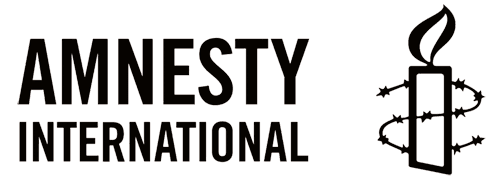Naisten oikeuksien puolustaja Pham Thi Doan Trang vaarassa tulla kidutetuksi. Ei anneta sen tapahtua! Vastaa VETOAN VIETNAM NIMESI (90snt).
Pham Thi Doan Trang, born in 1978, is a human rights defender, journalist and author from Hanoi, Viet Nam. She was arrested at an apartment in Ho Chi Minh City on the night of 6 October 2020. Authorities later confirmed that she was charged under article 117 of the Vietnamese Penal Code, which punishes the “making, storing, distributing or disseminating information, documents and items against the Socialist Republic of Vietnam.” If convicted, she may face up to 20 years in prison.
Pham Thi Doan Trang has written and published books on political science and contemporary Vietnamese political developments. She has additionally researched and written numerous reports on human rights issues in Viet Nam. Doan Trang used her influential Facebook account to spotlight and condemn human rights violations and demand justice for victims. In 2001, Doan Trang started her career as a reporter by working for the mainstream media outlet VTC. Thereafter she continued to work for several other mainstream news agencies including VietnamNet TV, VnExpress, New Life Magazine, and the Ho Chi Minh City Legal Daily. During her decade-long journalism career, Doan Trang focused on issues which many reporters avoided due to the strict censorship environment in Viet Nam. In 2009, she was detained for participating in a peaceful movement calling on the government to cancel a mining project which she and others believed to be harmful for the environment and the national interest.
In 2014, Pham Thi Doan Trang received a fellowship to study in the United States where she lobbied to raise awareness of the human rights situation in Viet Nam among US lawmakers. In the same year, Doan Trang co-founded Luat Khoa Tap Chi, an independent online magazine focusing on legal and political issues in Viet Nam. After returning to Viet Nam in 2015, she founded Green Tree, a civil society group that opposed the destruction of thousands of old trees in Hanoi. When the Formosa environmental disaster took place, causing the death of hundreds of tons of fish and forcing thousands of fisher people into unemployment, Doan Trang and members of Green Tree documented the situation in affected areas and later released a report.
Pham Thi Doan Trang has written many books. However, the Vietnamese authorities control publication activity so tightly that none of her books could be printed through traditional publishing channels in the country. In 2019, Doan Trang co-founded the Liberal Publishing House, a civil society group focused on publishing uncensored books, especially books that were banned by the government, and included books written by Doan Trang herself.
Pham Thi Doan Trang has faced a relentless barrage of threats, harassment, intimidation, and assault since her return to Viet Nam from the United States. Since 2015, Doan Trang has been arbitrarily detained by Public Security officers more than two dozen times, often to interrogate her regarding her work or to prevent her from attending events. As a result, Doan Trang has had to constantly move from place to place to avoid arrest, never staying at one location longer than a month. Doan Trang has also been tortured by the police. In 2015, she was beaten by plainclothes police while peacefully protesting in Hanoi, leaving her with a permanent disability in her leg. In 2018, while attending a music concert with other activists in Ho Chi Minh City, Doan Trang was arrested, detained and interrogated. Police then dropped her off in the middle of a road at midnight where six unidentified men suddenly attacked her. She suffered serious injuries and was hospitalized after that attack.
Viet Nam is one of the most prolific jailers of peaceful activists in Southeast Asia, where prison conditions are harsh especially for those held for political reasons. Torture and other ill-treatment, including incommunicado detention, prolonged solitary confinement, beating and deliberately withholding medical treatment, are prohibited absolutely under international law but remain common practices of Viet Nam authorities.

